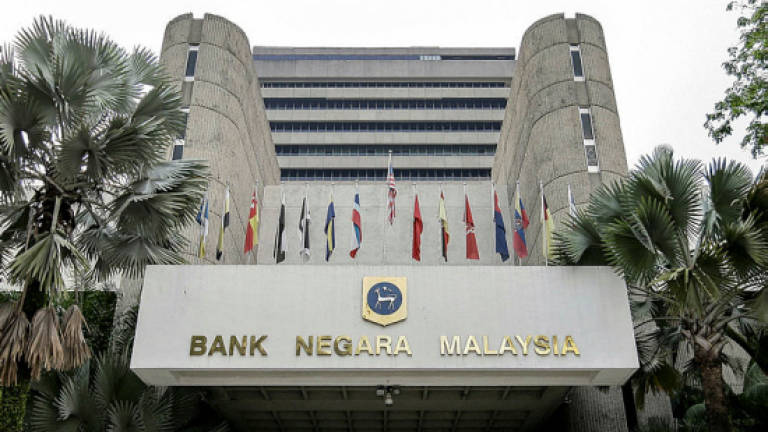BNM calls for central authority to lead affordable housing initiatives

KUALA LUMPUR: Bank Negara Malaysia (BNM) has called for a central authority to lead, oversee and coordinate affordable housing initiatives for the country, to promote greater strategic and operational cohesion at the national level.
Deputy Governor Shaik Abdul Rasheed Abdul Ghaffour said a sound, innovative and coordinated public policy is central to addressing the affordable housing challenge.
"Among others, the central authority can help regulate processes that increase the cost of supplying affordable homes by reviewing and streamlining it.
"It can also spearhead more effective communications and build stronger collaboration with key partners to advance the affordable housing agenda," he added, at the Dialogue on Sustainable Development of Affordable Housing, at Sasana Kijang, BNM, here on Tuesday.
According to Shaik Abdul Rasheed, more can be done to increase awareness and further improve the take-up rate for financial assistance programmes introduced by the government such as the My First Home Scheme, Housing Credit Guarantee Scheme, First Home Deposit Scheme, Flexible Financing Scheme for PRIMA homebuyers and the Flexible Financing Scheme for PR1MA homebuyers.
The dialogue was moderated by Cagamas Holdings Bhd Chairman Nik Mohd Hasyudeen Yusoff and featured World Bank representative, Abhas K. JHA, Practice Manager, Urban and Disaster Risk Management, East Asia and Pacific, as well as Datuk Abdul Rahim bin Ishak, Director-General of the National Housing Department.
Other participants were Datuk Charon Mokhzani, Executive Director Khazanah Nasional Bhd / Managing Director Khazanah Research Institute and Chang Kim Loong, Honorary Secretary-General, National House Buyers Association of Malaysia.
The panellists presented valuable insights and knowledge into subjects such as the global perspective on affordable housing provisions, the Malaysian government's perspective and initiatives, case studies as well as challenges faced by first time house buyers.
The government is committed to building about 1,287,532 units of affordable houses in 2017. Over the course of the dialogue, the key issues and challenges in affordable housing were identified. Among the key takeaways was that a sound, innovative and coordinated public policy is central to addressing the affordable housing challenge.
This should reside with a central authority that leads, oversees and coordinates affordable housing initiatives for the nation, said Cagamas Holdings, the dialogue organiser, in a statement here today. It was agreed that a good working policy on affordable housing should encompass targeted public resources, participation by the private sector as well as a transparent and nimble regulatory environment.
The design of neighbourhoods and townships was important, for example, it should not be only the higher income group living in the city centre and initiatives such as the Federal Territories Affordable Homes (RUMAWIP) programme should be intensified to create a more diverse group in townships and cities.
The Rent-to-Own Schemes (RTO) should be considered in housing policies, given that under current conditions, incomes of the B40 and M40 would not be able to catch up with rapidly rising house prices. As such, these income groups will never be able to own their own homes.
A taskforce on the sustainable development of affordable housing, which should include the Ministry of Urban Well-Being, Housing and Local Government, City Councils, state investment agencies, financial institutions, housing market players such as Sime Darby, SP Setia, MRCB and other key players such as BNM, Cagamas, the Employees Provident Fund and Khazanah was needed.
The taskforce should work hand in hand in forming innovative solutions to address the issues at hand. For example, it could look into issues such as the overhang in housing units, compliance of housing developers, effectiveness of a One-Stop-Centre and eliminating roadblocks to house ownership.
It was noted that the government requires developers who undertake the Peoples Housing Project to utilise 70% of the Industrial Building System in the construction stage. However, such guidelines are not profound for private sector development.
A central repository as a systematic way of monitoring and managing the demand and supply of affordable housing, including granting access to those seeking to purchase or rent homes was identified. The dialogue also concluded that efforts should also be made to increase the opportunity for potential solutions and project management through the study of various cases and successful development from multiple regions.
This is alongside developing a thriving rental market to reduce the supply-demand gap for affordable housing by strengthening the legal and institutional frameworks underlying the rental market. — Bernama